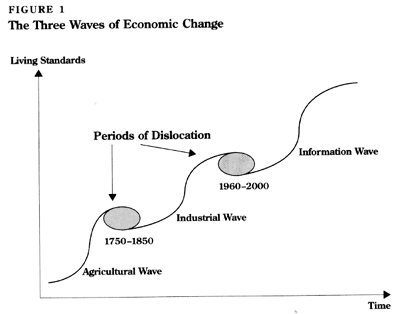 Bureau of Labor Statistics, October 2009, lists the national unemployment rate at 9.8%. 10% of men, 7% of women, and 25.9% of teenagers.
Bureau of Labor Statistics, October 2009, lists the national unemployment rate at 9.8%. 10% of men, 7% of women, and 25.9% of teenagers.
"Among the unemployed, the number of job losers and persons who completed temporary jobs rose by 603,000 to 10.4 million in September. The number of long-term unemployed (those jobless for 27 weeks and over) rose by 450,000 to 5.4 million. In September, 35.6 percent of unemployed persons were job-less for 27 weeks or more. " (Employment Situation Summary)
By these stats, you stand a very good chance of becoming unemployed before the next benchmark revision, February 2010. Unfortunately, you are not likely to know when this will occur, and being unprepared for unemployment can make that experience feel unmanageable.
The Finishing School has dedicated these past 4 years to preparing our student body for the world of work, and begins today a regular series that can help you prepare for the unpleasant turn of events that puts you out of work. Use this simulation course to take stock of your own situation and ready your unemployment kit. An ounce of prevention, etc...
Day Zero - Understanding the Law
Employment Law is not easily digested, but there are a few key pieces of legislation that you should be familiar with in regards to layoffs, furloughs and terminations. You should also explore laws specific to your state and to your industry, which may outline additional regulations for employers and employees.
Pay close attention to the words that are said as you are being terminated. This can be difficult to do if you are stunned and in disbelief. Write things down if you need to. Do not jump to litigation out of anger, but be alert to signals of non-compliance.
Worker Adjustment and Retraining Act (WARN)
Twenty years old this year, the WARN Act was actually evaluated as too confusing by the US General Accounting Office by 2004. GAO recommended a re-do of this legislation, which was intended to require a 60-days notice to employees being laid off, but contains enough loopholes to render it avoidable in most situations. That re-examination has not taken place, so a law written in different era is still in effect.
The subjective language "plant closing" and "mass layoff" are the core requirements for WARN, and do not have much teeth in a global information-based economy. From a FindLaw fact sheet
A plant closing occurs when it is shut down for more than six months, or when fifty or more employees lose their jobs during any thirty-day period at a single site of employment.
A mass layoff occurs when a layoff of six months or longer affects 500 or more workers, or 33 percent of the employer's workforce when the layoffs affect between 50 and 499 workers.
Note that these manufacturing-centered definitions are not binding when it is only your department or division, if your company relocates out of state or country, or when it comes to simply eliminating your job.
WARN does not cover "new hires" (6 months or less on the job), or part-time workers. Contracted workers with a fixed completion date or deliverable are not included. Most importantly for 2009, "unforseen business circumstances" and "natural disaster" will waive WARN completely.
There are penalties for employers who violate WARN regulations, but you the employee will have to file the suit, and you will have better chance of reaching the US District court where it is enforced if you file a class action.
Employment at Will
Employment at Will is the "no-fault" divorce doctrine of US Labor. It means that either employer or employee may sever the work relationship with or without cause, but this does not eliminate the possibility of breach of contract or wrongful termination suits. It is best not to rest in too much comfort on this walk-away clause, but you do not need to live in fear of it either.
It is inaccurate to speak of "at will states" as if there are some that do and some that don't. All states have some version of Employment at Will doctrine and exceptions to it. Your best preparation is to understand your own state's laws and your employer's regulations. (see Today's Assignment, below)
Age Discrimination in Employment Act (ADEA)
From the EEOC:
"Under the ADEA, it is unlawful to discriminate against a person because of his/her age with respect to any term, condition, or privilege of employment, including hiring, firing, promotion, layoff, compensation, benefits, job assignments, and training. The ADEA permits employers to favor older workers based on age even when doing so adversely affects a younger worker who is 40 or older."
Burden of proof in discrimination cases is on the plaintiff, unless there is whistle-blowing involved. Your selection for termination may not have been a case of age discrimination. Before making such a charge, be sure you understand the broad (and lengthy) history of this act, which was originally passed in 1967.
Most employees are expected to sign a waiver on their intent to sue in exchange for other termination settlement benefits (such as severance, extended healthcare coverage, and the like). If you are in this protected class (40+) you are also waiving your ADEA rights, and are given extra time to consider that decision, and the right to revoke it within a week after doing so. (EEOC fact sheet on age)
On your termination, the employer is required to provide demographic information about other employees terminated with you. This is information is provided for your legal evidence only, and is considered a confidential document.
Veterans' Employment and Training (VETS)
Servicemen and women are entitled to keep their jobs during calls to duty. They are also obligated to maintain certain periods of advance notice with their civilian employers.
Choosing a service member for the termination list because their schedules are difficult to maintain and their attendance spotty is discrimination.
Today's Assignment
Explore your state's employment laws. This can be overwhelming, so concentrate on your specific industry, job, or situation. Your goal is not to have "what are my rights?" be the first thing on your mind in a termination meeting. Search for "labor law [state]," for example, "labor law Idaho."
Employers are encouraged to explore in-service training opportunities on these and similar topics at all line-levels of management to ensure that those who manage others are legally compliant.
 It did pay for my purposely chosen graduate program -- the one I never once worked in -- and that valuable female accessory, the master's degree.
It did pay for my purposely chosen graduate program -- the one I never once worked in -- and that valuable female accessory, the master's degree. Found by: Following a fantasy I had harbored for years. The kind that in the movies have people opening a jam business or a bookstore.
Found by: Following a fantasy I had harbored for years. The kind that in the movies have people opening a jam business or a bookstore.







 10:00 AM
10:00 AM
 Caroline Bender
Caroline Bender












